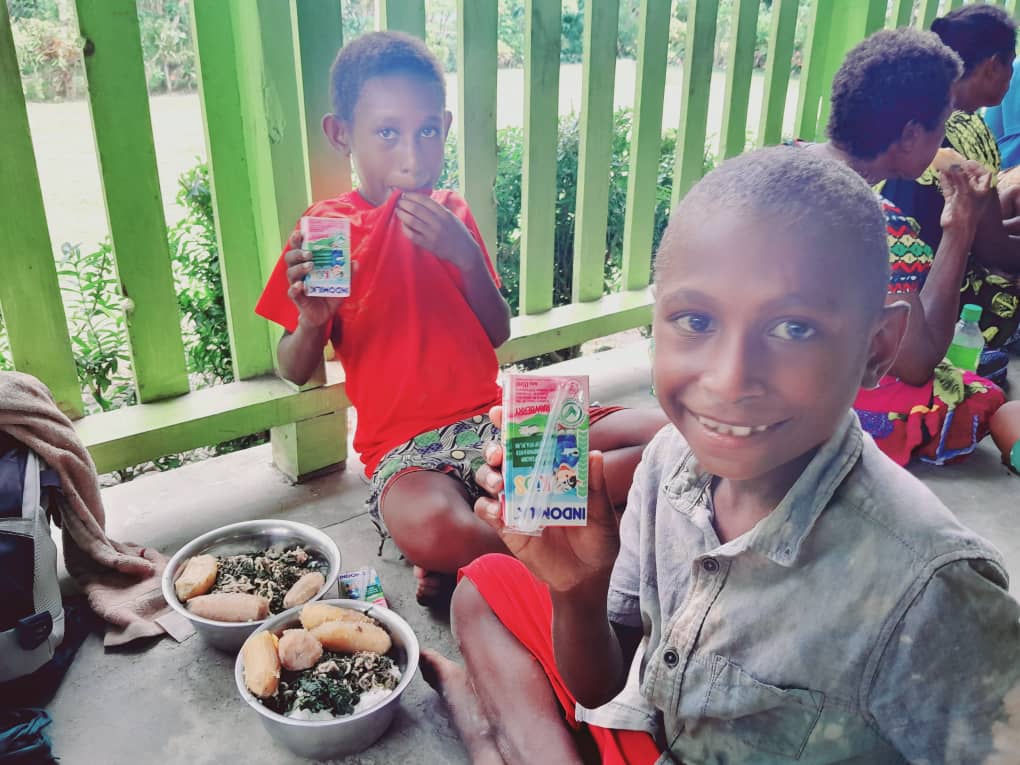
PAPUA NEW GUINEA: Students receive nutritious meals thanks to donor funding from Salesian Missions
Meals distributed to various groups in Salesian community.
NEW ROCHELLE, NY (Nov. 19, 2024) Salesian missionaries with the Don Bosco Araimiri community in Kerema, Papua New Guinea, provided nutritious meals to students thanks to donor funding from Salesian Missions, the U.S. development arm of the Salesians of Don Bosco. The meals were distributed to various groups in the Salesian community.
The majority of the meals were shared with boarding students at Don Bosco Araimiri Secondary School. The 300 students who attend the school are from various villages and range in age from 19 to 25.
The meals were also shared with students in three learning centers operated by the Mary Help of Christians Parish which is run by Don Bosco Araimiri. Nearly 350 students, ages 5 to 9, use these learning centers. Many of the children are from families who are disadvantaged.
One of the beneficiaries of the donation is Michelene, age 7, who is from the village of Akapiru and part of the Mary Help of Christians Parish. She is in level two at the St. Michael Learning Center and had been lacking proper nutrition.
A Salesian explained, “Michelene was so happy and fully enjoyed the meal provided through this project. She expressed she is so grateful to the benefactors who make this feeding program possible. She hopes the project is able to continue.”
Salesian missionaries in the country provide primary and secondary education, as well as technical skills training to prepare youth for the workforce. Missionaries also help to ensure that basic needs like shelter, food and water are met so students are able to focus on their studies.
Papua New Guinea has a population of approximately 7.5 million people. It is a resource-rich country with oil, gas and gold reserves, as well as fertile land capable of producing high crop yields. Despite this, an estimated 40% of Papua New Guineans live below the poverty line of $1.25 per day, according to the World Bank.
Close to 50% of adults are illiterate and 25% of children are unable to attend school in Papua New Guinea. Part of the problem with getting to school, work and hospitals has to do with the country’s infrastructure. In rural areas, where nearly 88% of the population resides, there are few roads or means of transportation to get to schools or places of employment.
### Contact: [email protected]
